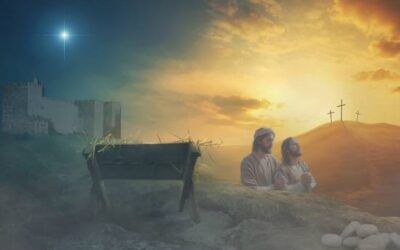When we think about the biblical Creation story, we think of just that: the world being created by the Creator. And while God’s creation of the world is marvelous and miraculous in its own right, it’s about far more than the sudden appearance of plants, animals, and humans.
Creation is one of our greatest examples of God’s beautiful love for us and for this world. God created the earth so He could commune with us more closely, and vice versa. He also created it for us, giving it to us so we could take care of it.
In fact, the earth was meant to be like a temple where we could perpetually dwell in God’s presence. No pain, no suffering. Just a beautiful relationship with God.
Let’s take a trip back in time to explore the account of Creation as we find it in the book of Genesis. We’ll discover what Scripture tells us about things like:
- The purpose of God’s creation
- A literal 7 days of creation
- A special seventh day of rest
- God’s model for life and for eternity
Let’s start with the “why” behind creation.
What was the purpose of God’s Creation?

Photo by Kelly Sikkema on Unsplash
God created a beautiful, perfect world for us to live in. And He created us in his own image to be able to receive His love, love the people and the world around us, and to freely return that love to Him.
This question can also be asked of a couple who desires to have a child. What is the purpose of having a child? Well, ideally, a couple would want a child to love and nurture a new human being. To bring it happiness and joy. To build an environment that helps them thrive and live a full life.
The same can be said of God and creation.
We can better understand this answer by looking at who God is. What is His character, and what purpose could He have had to create this world and humanity?
The Bible tells us that God is love (1 John 4:8). It also tells us that He is nurturing and creative (Isaiah 49:15, Psalm 104:24).
These aren’t just characteristics of God—this is who God is! God is our ultimate example of love and creativity.
God’s creative power, exemplified in the beauty of Creation, is an expression of His power, His selflessness, and His infinite love.1
While we don’t know the status of other galaxies and worlds in the universe, the Bible tells us that our earth was without form before Creation (Genesis 1:2). There was no organization of time, matter, or anything else.
Over 6 days, God took the dark, formless earth and organized it into something beautiful that all of His creations could share and cultivate.
What an amazing gift: to be given the free choice to love God, love others, and love our earth.
Let’s take a deeper look into each of the 7 days to learn more about what God created.
Were there only seven days of creation in Genesis?
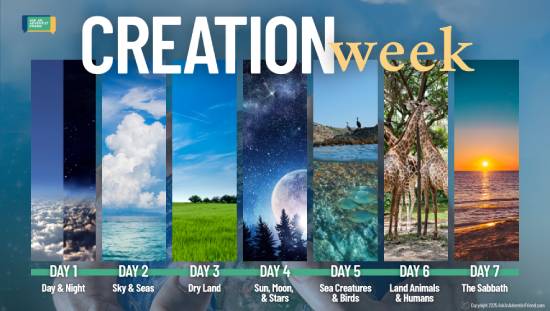
Before diving into the specifics of each day, let’s answer a commonly asked question: did God really create the world in only seven days?
The Bible says that yes, God did create the world in six days, and He made a point to rest on the seventh day in order to reflect upon it. This span of time would be what we know as a week today.
For example, the story of Creation in Genesis, the first book of the Bible, separates the account of each of the days with “and there was evening and there was morning,” marking one day, not an ambiguous span of years (Genesis 1, ESV). Another example is in the Ten Commandments God gave to Moses: “In six days the Lord made the heavens and the earth, the seas and all that is in them, and rested on the seventh day” (Exodus 20:11, NKJV).
When we look at the world and its complexity, it’s hard to imagine it could be created in six days, but God is all-powerful and possesses the amazing ability to command molecules together in an instant!
And the order of creation is important to note, too. In the first three days of creation, God brings order to formlessness and organizes three distinct realms: day and night, the sky and the waters, and the earth. In the last three days of creation, God fills those uninhabited realms with creations to live or dwell there: the sun, moon, and stars, the fish and the birds, and creatures of the land, including humans.
Now let’s explore each day in particular.
Day 1: Day and night
On the very first day of Creation, God created light.
With just a simple phrase, “Let there be light,” God filled the darkness with His glorious light and separated the two from each other.
When He saw that He had divided the light from the darkness, He proclaimed that it was good, called the light day and the darkness night (Genesis 1:3-5). This also means that on the first day, God established our conception of time.
Day 2: Sky and seas
On the second day of Creation, the Bible tells us that God created the “firmament” (Genesis 1:6). This isn’t a word we hear or use very often, but essentially, the firmament means the heavens or the sky.
So, the unformed waters from the beginning of the creation story are separated from the sky or the atmosphere (Genesis 1:2; Genesis 6:7-8). God creates two distinct spaces here: the skies and the seas.
Day 3: Dry land
On the third day, God created the dry land and separated it from the waters. The Bible verse Genesis 1:11 tells us that He gathered the land together and said, “Let the earth bring forth grass, the herb that yields seed, and the fruit tree that yields fruit,” and it happened!
Imagine barren land suddenly sprouting soft green grass, hillsides filled with flowers, and fruit trees loaded with delicious fruit to eat. Sounds like paradise, doesn’t it? God planned it to be a perfect place for His creatures to dwell in.
At the end of the third day, once again, God saw that “it was good” (Genesis 1:12 NKJV).
Day 4: Sun, moon, and stars
On the fourth day, God created the sun, moon, and stars to fill the day and the night with the greater light (sun) and the lesser lights (moon and stars) (Genesis 1:16).
You might be wondering: “Wasn’t there light on the first day?” And the answer is yes. God Himself is a source of light. And while there was light on the first day of Creation, God harnessed that light into the system of the sun, moon, and stars to help us keep track of seasons, days, and years (Genesis 1: 14).
Day 5: Creatures of the sea and birds of the air
Next, God wanted to create living creatures to inhabit the skies and seas He created on the second day. So on day five, He made sea creatures to fill the waters and birds to fill up the skies.
God also commanded these living things to “be fruitful and multiply” (Genesis 1:22 NKJV). God wanted the earth to be abundant with life.
Day 6: Land animals and humans

Photo by Gary Bendig on Unsplash
On the sixth day of creation, God made creatures to dwell on the earth to enjoy the fullness of beauty and sustenance the earth was filled with. Anything that lives on dry land, the creeping things, God created on this day.
God also created humanity on this day.
There’s something different about the way God created humans. Something more special, more intimate.
Instead of just speaking humanity into existence like He did for everything else, God formed us out of the clay of the ground and filled us with the breath of life (Genesis 2:7).
Isn’t it incredible to think that God took the time to shape us and breathe life into us? He cares for us so much that He even made us in the image of God—giving us the ability to create and be creative too (Genesis 1:28)!
God also made humanity to care for the home He created for them: the earth. Just as God nurtured the earth throughout creation, we were to continue to nurture and care for it, reflecting God’s representation, His own image, to all of Creation.
In the book of Psalms, the poet David reflects on this purpose for humanity:
“What is man that you are mindful of him,
And the son of man that you visit him?
For You have made him a little lower than the angels
And You have crowned him with glory and honor.
You have made him to have dominion over the works of Your hands;
You have put all things under his feet,
All sheep and oxen—
Even the beasts of the field,
The birds of the air,
And the fish of the sea
That pass through the paths of the seas.
O Lord, our Lord
How excellent is Your name in all the earth!”
(Psalm 8: 4-9, NKJV).
What an incredible gift God has given us.
So the sixth day of Creation ended with an earth full of life and beauty. Wouldn’t it make sense for God and His creations to take the time to enjoy it?
Well, that’s exactly what happened next.
Day 7: A day of rest

Photo by PAN XIAOZHEN on Unsplash
On the seventh day of creation, there wasn’t any creation happening at all, actually! Still, the seventh day from the Creation account is a special one because on this day, God rested from His work and enjoyed the beauty of the earth and of nature. This day is the climax of all of creation.
The Word of God tells us that, because God rested on this day from His handiwork, He sanctified it, or in other words, He made it holy (Genesis 2:3; Exodus 20:11).
This seventh day is also in the Ten Commandments, and it’s what God calls the Sabbath day (Exodus 20:8-12). It’s a day of peace and rest, not a day of work. It was ordained since the very beginning of the world, and God meant for all His creation to be in communion with Him, especially on this day.
This is also a day to reflect on the magnitude and complexity of God’s creation. To “behold the evidence of God’s wisdom and goodness, that our hearts might be filled with love and reverence for our Maker.”2
But what is the purpose of the seventh-day rest? Did God need to rest?
Why a day of rest?
When we think of a God who can literally speak things into existence, we don’t really think of a being who needs to take a break. And of course, because God is all-powerful, He didn’t need to rest.
However, God gave us a day of rest as a gift. The seventh-day Sabbath was established at Creation as a memorial to God’s power, holiness, and love for us.
What’s more, this wasn’t to be merely a break from activity for the sole purpose of restoring energy. This is rest in the fullest sense, where one switches from producing things to enjoying things. Noticing. Contemplating. Intentionally focusing on the intricacies of life that we so easily miss when we’re stressed out or in a hurry.
Have you noticed that if you go, go, go without stopping, sometimes you can forget what truly matters in life? The Sabbath is an act of resistance against that! God knew we would need rest, so even in the paradise of a sinless, new world, God set aside holy time for rest.
When we keep the Sabbath day, we are celebrating God’s creation and how He paused to take it all in on the seventh day.
The Sabbath is just one of the aspects of the Creation story that serve as our model for life right now and for life in eternity. Let’s talk a bit more about how the model of Creation and the Garden of Eden can add fullness to our lives.
4 things we can learn from Creation about God’s purpose for life and for eternity
In the story of Creation, we find God’s ideal model for life. We can learn from that model to live more fully now, as well as gain a better understanding of what life will be like in Heaven and on our restored planet.
So what can we learn from the Creation story about God’s purpose for humanity and for eternity? God created us to:
- Nurture His creations and allow His creations to nurture us
- Create and be creative
- Cultivate relationships with Him and with each other
- Enter into celebration and rest with Him
Nurture and be nurtured by God’s creations
First of all, we can learn that God made us, not only to nurture His creations, but also to be nurtured by His creations.
When we take care of God’s earth, the earth takes care of us. Everything God created works in relationship, reflecting God’s nature of selfless love throughout His creation.
Create and be creative

Photo by Fallon Michael on Unsplash
We can also learn that God desires for us to both create and be creative. When God made us in His image, He endowed us with His creative ability.
Humanity’s ability to bear and nurture children is one way we can reflect God’s nature (Genesis 9:7). However, our beautiful talents of art, writing, music, science, architecture, etc. are all examples of God’s creative image! We can use these talents to praise God and celebrate His original creation.
Cultivate relationships with Him and others
God’s purpose for creating humanity shows us that God is relational. He desires to love us, and in return, gives us the choice to freely love Him back. We can also see the relational character of God in the way He created Adam and Eve to work together and dwell in the Garden of Eden (Genesis 2:21-22).
Enter into celebration and rest with Him
As we’ve discussed, Sabbath was established at Creation. God created a framework in which we can work and create but also rest and celebrate His creation. And the Sabbath is an opportunity for us to cultivate our relationship with God and enter into His presence.
Creation is all about God’s love for us
The Creation story is marvelous. It simultaneously shows us God’s power, love, holiness, character, and ideal model for our lives now and for eternity.
When we spend time reading about the Creation story, we can more excitedly look forward to a new earth when Jesus comes again and restores us back to the beauty of a sinless world.
But until then, there is plenty to learn about how to live like God’s people in this world. If that sounds like something you’d like to do, you can check our Sabbath page or our Bible studies page.
Related Articles
More Answers
What Does the Bible Say About Debt?
Is it sinful to have debt? Does the Bible provide guidance to the borrowing and lending of money? Let’s take a look.
Should Christians Have End-Time Anxiety?
What goes through your mind when you hear about the “end times?” Do you think of a worldwide crisis that brings out the worst of humanity? Increasing government control? What about scarce resources and being on the run? Surviving the great tribulation?
How Does God Want Me to Use My Money?
The Bible offers lots of wisdom on the best ways we can use our money. Learn what the Bible says about tithe, offering, providing, debt, savings, investing, and budgeting.
What Does the Bible Say About Heaven?
The afterlife is something on all of our minds. Whether Christian or not, human beings have a natural longing to understand what’s next. And nearly every religion has some kind of explanation for it.
What the Bible Says About Money
From stewardship to acts of investment and generosity, let’s explore what the Bible says about having a healthy relationship with our money.
Death
Have you ever wondered about life after death, or what some refer to as the afterlife?
What Does God Look Like According to the Bible?
What Does God Look Like According to the Bible?As human beings, it’s natural for us to wonder about God’s appearance. But the Bible says very little about it. It’s not hard to understand why, though. As the Creator of the entire universe, His existence transcends our...
What Does the Bible Say About Aliens and UFOs?
In 1938, aliens and UFOs were the subject of a mass prank. Around Halloween, Orson Welles performed a radio adaptation of H.G. Wells’ War of the Worlds. This ended up causing a panic throughout the United States—many people took it to mean that aliens had really attacked New Jersey.
Major Fulfilled Bible Prophecies You Should Know About
Prophets seem like something from novels or movies. The predictions they make couldn’t actually happen, could they? After all, nobody can tell the future!
The Seven Churches of Revelation and What They Mean
The seven churches were churches that received messages from Jesus Christ through the apostle John while he was exiled on the island of Patmos. These letters are in chapters 2 and 3 of Revelation.
What Is the Statue in Nebuchadnezzar’s Dream?
Ever had a dream you couldn’t remember? You know it was disturbing, but the details escape you. Ugh, the frustration!
What Are the Three Angels’ Messages in Revelation 14?
The three angels’ messages in Revelation 14 warn the world to worship God, leave religious confusion, and avoid worship of human traditions instead of God’s commands.
The Early Christian Church [Overview]
The Early Christian Church describes the faith community that developed from followers of Jesus after He returned to heaven (Acts 1) in A.D. 31. Their purpose was to be witnesses of the life, death, and resurrection of Jesus and grow their faith community into a worldwide movement.
All About the 2300-Day Prophecy and the Investigative Judgment
This page will explain what the 2300-day prophecy is about. We’ll especially be looking at what events marked its fulfillment and what it has to do with the Investigative Judgment.
What Is the 70-Week Prophecy in Daniel 9
Could a prophecy accurately predict an event over 500 years before it was supposed to happen?
The 70-week prophecy of Daniel 9 did, culminating in one of the most important events in earth’s history: Jesus’ sacrifice for us on the cross.
What Does the Bible Say About the End Times?
First of all, when we say “end times,” this refers to the period of time that precedes the second coming of Jesus—and the end of this sinful world before it’s recreated into the new earth. And several passages of Scripture provide us with clues and guidelines to help us recognize when these times are near, what kinds of things we can expect, and what it might mean for our daily lives and priorities.
Healing in the Bible
Have you ever felt like healing seemed so far away? Like it wouldn’t be possible for you? What you most want is a glimmer of hope or a bit of encouragement.
How Do You Tell a False Prophet From a True Prophet?
The Bible speaks of both true and false prophets and gives us specific guidance on how to test prophets and their claims. Scripture is our guard against deception.
Didn’t find your answer? Ask us!
We understand your concern of having questions but not knowing who to ask—we’ve felt it ourselves. When you’re ready to learn more about Adventists, send us a question! We know a thing or two about Adventists.

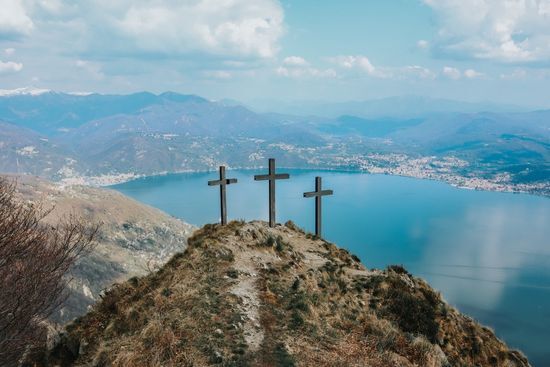











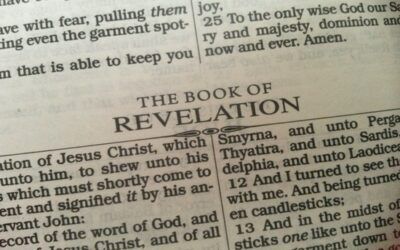
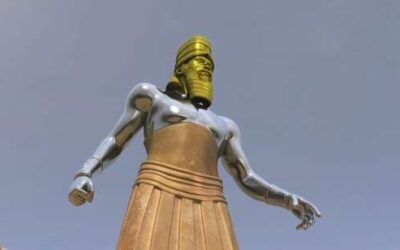

![The Early Christian Church [Overview]](https://cdn-cjldm.nitrocdn.com/gzNqriECCrMztgMvDuvfrBDaorxfXXCV/assets/images/optimized/rev-d0ac9f9/www.askanadventistfriend.com/wp-content/uploads/2023/01/old-temple-400x250.jpg)

